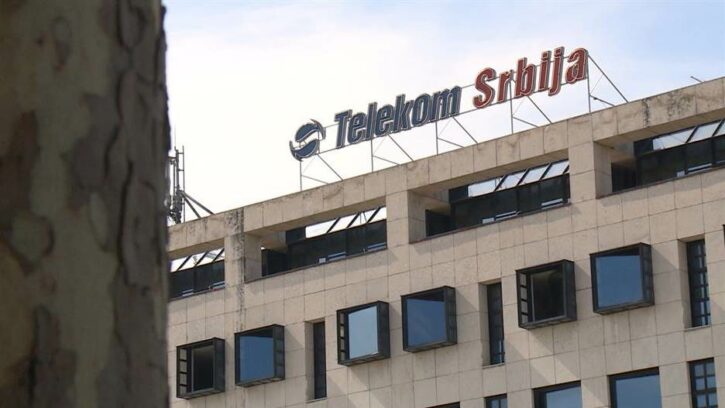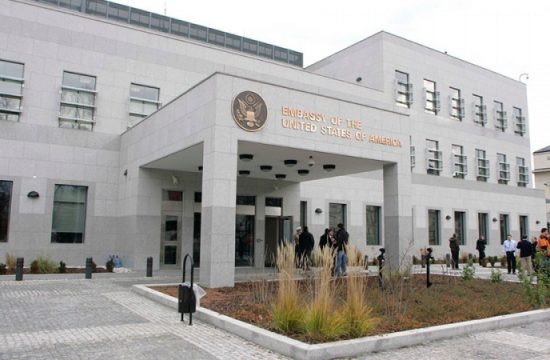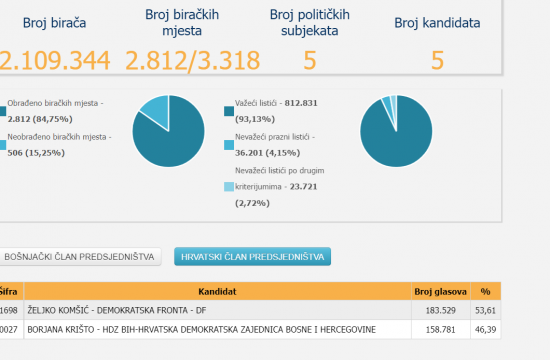
Serbia's Telecom (Telekom Srbija) has some time ago started buying up cable operators in Serbia and has now turned to Bosnia in order to, allegedly, dominate the region’s market and politics, according to the local Faktor news portal.
Telekom Srbija is trying to monopolise the telecommunications and internet market, the report claimed.
Telekom Srbija is already the majority owner of M:tel, the Telecommunications Company of Republika Srpska (RS), Bosnia’s Serb-majority semi-autonomous region.
M:tel has bought Slovenia’s Blicnet company, one of the leading cable operators for TV, internet and telephone communications in Bosnia, located in Banja Luka, the administrative centre of the RS.
In February, M:tel also bought the Telrad Net cable operator from Bijeljina.
All the purchases were approved by the Council of Competition of Bosnia and Herzegovina.
According to Faktor, M:tel is now negotiating the purchase of Elta, and if it succeeds, Telekom Srbija will, through its daughter companies, acquire a complete monopoly in the telecommunications market of Republika Srpska “while the Council of Competition is watching,” Faktor wrote.
M:tel already also owns Logosoft, another cable internet and phone operator.
But judging by Telecom Serbia’s announcement of a new DTH platform – a new set of channels – Republika Srpska is allegedly not the only part of Bosnia Telekom Srbija wants to conquer.
Telekom Srbija offers TV stations in Bosnia and Herzegovina exclusive contracts for the distribution of channels through its platform and having in mind the previous purchases, “it is clear” that the goal is a telecommunication and media monopoly, which ultimately leads to a concentration of media power and consequently political power, Faktor wrote.
Telekom Srbija also recently bought the cable operator Kopernikus and only a month later its previous owner bought the national TV stations O2 and Prva.
The purchase sparked numerous reactions and raised suspicions that the state of Serbia actually owns those two TV stations.
Kurir, the second most read web portal in Serbia was also sold and the deal raised the same suspicions as the Kopernikus purchase, which allowed the state of Serbia to return to the media landscape.
Factor reported that “a businessman close to the government” is currently also negotiating the purchase of Blic, the most circulated newspaper and most read web portal in Serbia.
The media and telecommunication monopoly in Serbia is obvious and a similar situation could develop in Bosnia if the competent agencies do not react timely, Faktor warned.
But most of all, the danger is the political influence such a media monopoly could bring.
“Serbia’s President Aleksandar Vucic has in that country taken over most of the media organisations, telecoms and cable operators. He exercises control via those platforms, but what is more important to him, he is maintaining his position, which was shaken by developments in Serbia and the protests which are ongoing for months,” Faktor wrote.
According to the newspaper, the Kosovo issue will be solved soon and with this historic agreement, Vucic could become a historic figure.
“Many experts, analysts and diplomats believe that this is why the next “hotspot” may become Republika Srpska. Political analysts and Western Balkans experts even predict conflicts in the Balkans, precisely in Bosnia and Herzegovina, as the focus will shift on that entity,” the report said, adding that “Vucic could play a key role in this – all this just to save his position.”
If the responsible authorities allow this media and telecommunication occupation and if they legalise Serbia’s monopoly in Bosnia and Herzegovina, they will significantly assist Vucic, as he will then control Bosnia’s TV stations, telecommunication and internet, it warned.
In other words, it would him to gain the power to steer all developments in Bosnia and Herzegovina and to control most of the media, as he already does in Serbia.
Such power is never harmless, and Faktor warned that this was proven in 1992 – the year the war in Bosnia started.




